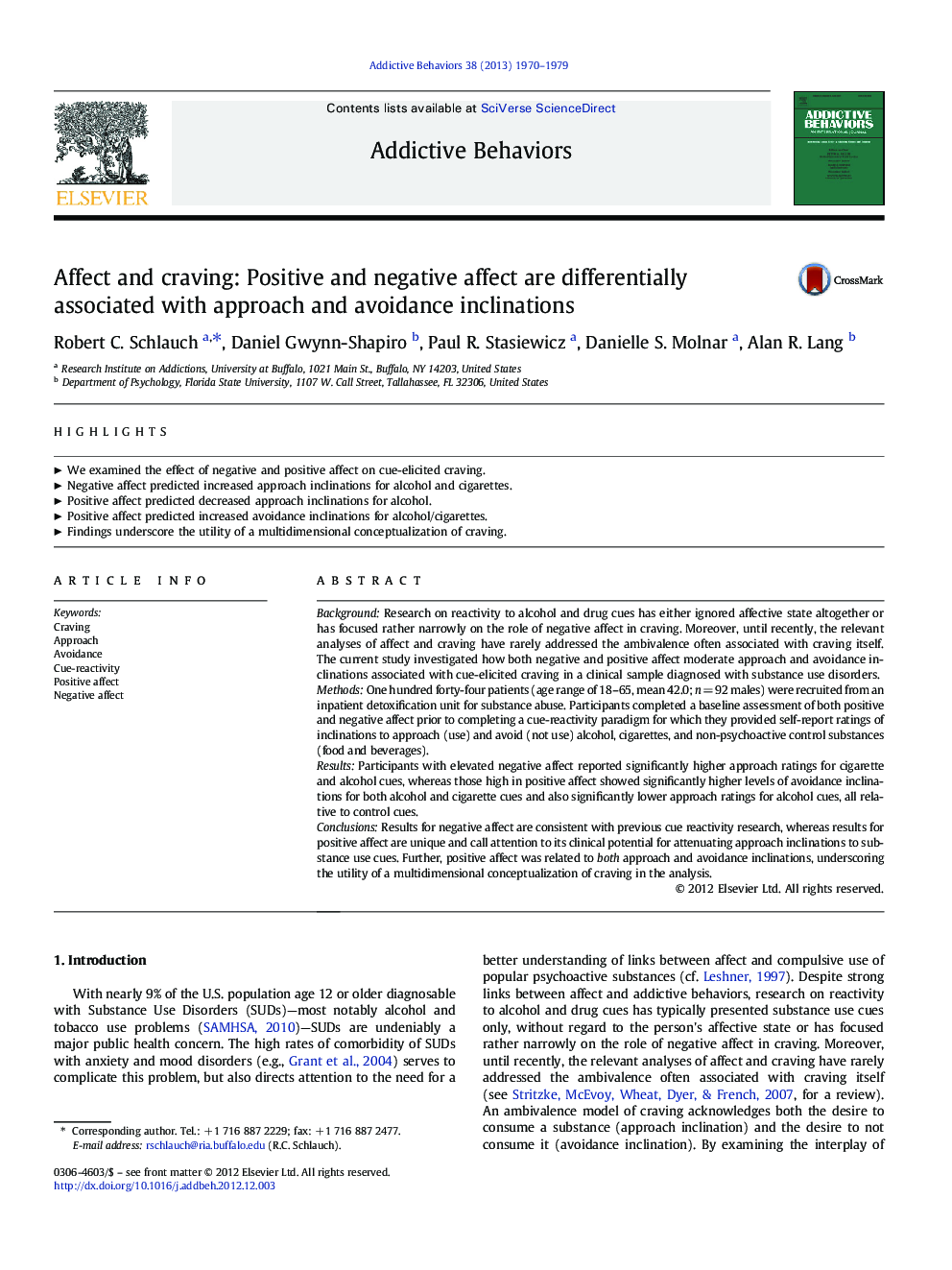| کد مقاله | کد نشریه | سال انتشار | مقاله انگلیسی | نسخه تمام متن |
|---|---|---|---|---|
| 898890 | 915349 | 1979 | 10 صفحه PDF | دانلود رایگان |

BackgroundResearch on reactivity to alcohol and drug cues has either ignored affective state altogether or has focused rather narrowly on the role of negative affect in craving. Moreover, until recently, the relevant analyses of affect and craving have rarely addressed the ambivalence often associated with craving itself. The current study investigated how both negative and positive affect moderate approach and avoidance inclinations associated with cue-elicited craving in a clinical sample diagnosed with substance use disorders.MethodsOne hundred forty-four patients (age range of 18–65, mean 42.0; n = 92 males) were recruited from an inpatient detoxification unit for substance abuse. Participants completed a baseline assessment of both positive and negative affect prior to completing a cue-reactivity paradigm for which they provided self-report ratings of inclinations to approach (use) and avoid (not use) alcohol, cigarettes, and non-psychoactive control substances (food and beverages).ResultsParticipants with elevated negative affect reported significantly higher approach ratings for cigarette and alcohol cues, whereas those high in positive affect showed significantly higher levels of avoidance inclinations for both alcohol and cigarette cues and also significantly lower approach ratings for alcohol cues, all relative to control cues.ConclusionsResults for negative affect are consistent with previous cue reactivity research, whereas results for positive affect are unique and call attention to its clinical potential for attenuating approach inclinations to substance use cues. Further, positive affect was related to both approach and avoidance inclinations, underscoring the utility of a multidimensional conceptualization of craving in the analysis.
► We examined the effect of negative and positive affect on cue-elicited craving.
► Negative affect predicted increased approach inclinations for alcohol and cigarettes.
► Positive affect predicted decreased approach inclinations for alcohol.
► Positive affect predicted increased avoidance inclinations for alcohol/cigarettes.
► Findings underscore the utility of a multidimensional conceptualization of craving.
Journal: Addictive Behaviors - Volume 38, Issue 4, April 2013, Pages 1970–1979